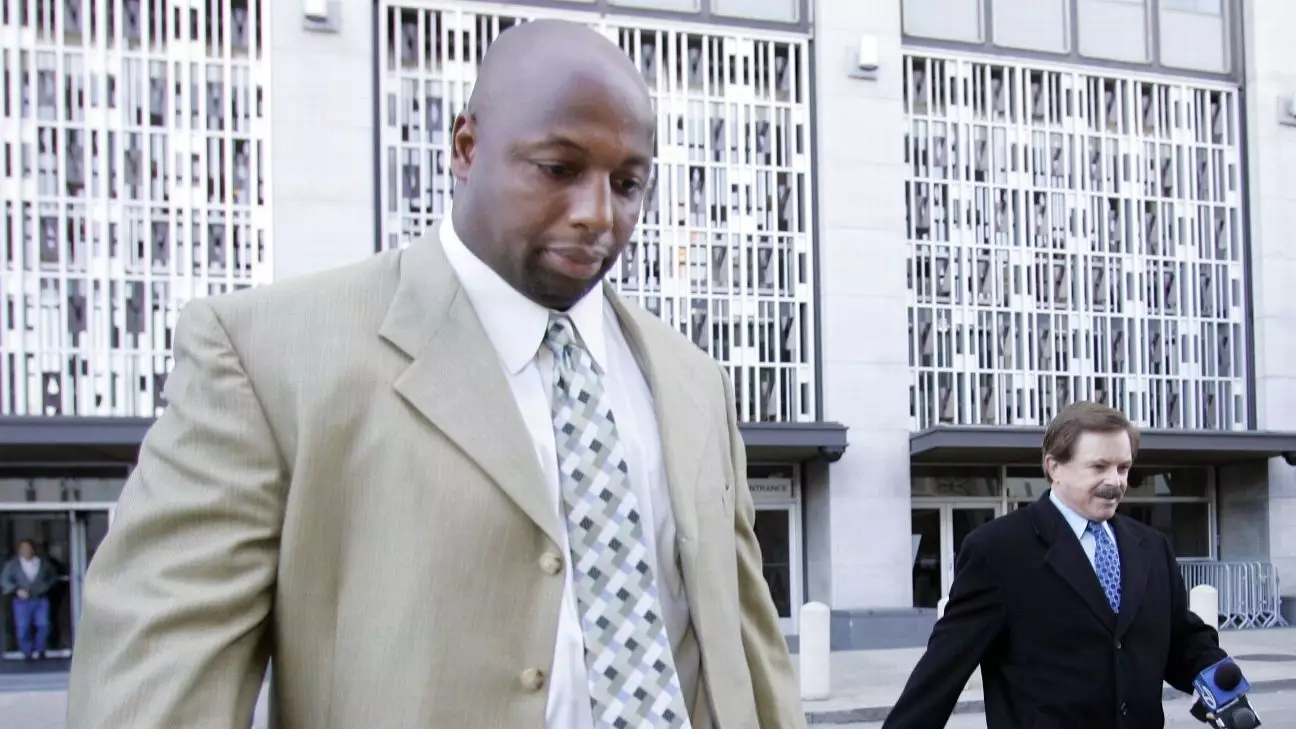In a legal saga that has drawn significant public attention, former San Francisco 49ers defensive star Dana Stubblefield finds himself in a paradox. While his 2020 rape conviction was vacated late last year on the grounds of racial bias affecting his trial, Stubblefield remains incarcerated as legal processes unfold. This situation raises critical questions about the intersection of justice, race, and media representation, revealing layers of complexity that extend far beyond the courtroom.
Stubblefield’s conviction was overturned by the Sixth District Court of Appeal in December 2024. The court’s decision hinged on the finding that the prosecution had violated the California Racial Justice Act of 2020—a law developed in response to systemic issues of racial bias within the judicial system, especially pronounced in the wake of George Floyd’s murder. The appellate court asserted that „racially discriminatory language“ had influenced the prosecution’s case, necessitating a reevaluation of Stubblefield’s legal standing. However, this resolution does not equate to immediate freedom for Stubblefield. The remittitur—the formal measure that would transfer jurisdiction back to the lower court—is still pending, leaving him in a state of limbo.
Judge Hector Ramon declined to grant bail during the recent court proceedings, citing the necessity of awaiting this remittitur. In contrast, Stubblefield’s defense attorneys argue that maintaining his incarceration is unjust and that he should be presumed innocent, as his conviction has been scrapped.
The involvement of racial bias in Stubblefield’s trial is a pivotal element not only of his case but also in the broader context of American jurisprudence. While Stubblefield, who is Black, is at the center of this particular narrative, the implications extend to the procedures and protocols employed in the criminal justice system. Advocates for justice reform argue that racial prejudice can skew juror perceptions, influence prosecutorial decisions, and ultimately determine the outcome of trials. The recent recognition of this bias through legal rulings serves as a crucial reminder of the systemic changes still needed in the U.S. judicial system.
Stubblefield’s case has also sparked discourse regarding the standards of evidence and consent, especially in sexual assault cases. The details surrounding the accusation—that Stubblefield allegedly lured a developmentally disabled woman to his home under false pretenses—reflect the unsettling dynamics involved in such incidents. The assertion of consent, when it intersects with power dynamics and vulnerabilities, complicates the issue and makes clear the need for sensitive handling in the legal arena.
The Role of Public Perception
Public sentiment towards Stubblefield has fluctuated dramatically throughout this case, shaped in large part by media portrayals and societal attitudes regarding race and crime. Initially convicted in 2020, he was viewed unfavorably in light of the severe nature of the charges against him. However, the subsequent overturning of his conviction has sparked debates about false accusations, the importance of due process, and the potential for wrongful incarceration.
His attorneys have also emphasized the notion of legal innocence, advocating that despite his current incarceration, he should be treated as someone who has not been found guilty of any crime. This perspective challenges the narratives often propagated in sensationalized media coverage, reminding audiences that the legal system’s conclusion does not always neatly align with public opinion.
The ongoing legal battle for Dana Stubblefield underscores significant issues within the American justice system, particularly concerning racial bias and the treatment of individuals accused of crimes. The path forward remains uncertain, but one thing is clear: Stubblefield’s case is not merely about one man’s fight for freedom; it encapsulates the broader struggles against systemic bias, the complexities of consent, and the profound impact of public perception on justice. As the situation develops, it is imperative for society to reflect on the lessons learned and to consider the fundamental principles of justice and equality for all individuals—regardless of race, profession, or circumstance.


Napsat komentář